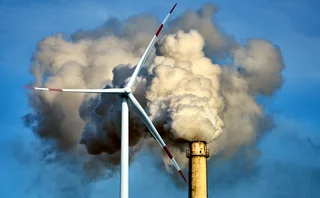EC launches new vision for energy policy
"Today marks a step change for the European Union,” says Commission President José Manuel Barroso. “Energy policy was a core area at the start of the European project. We must now return it to centre stage."
To make the internal power market more competitive, the EC is pushing for greater separation of energy production from energy distribution. This can either be achieved by forcing vertically integrated power companies to sell off their transmission assets, or by allowing companies to retain ownership but surrender operational control to independent bodies. The EC has expressed a “clear preference” for full ownership unbundling, although this will be more difficult to achieve.
“Open and fair access to the transmission grids is vital to competitive markets, but full ownership unbundling is not the only way to achieve the Commission's stated aims,” says Jayesh Parmar, Partner and Head of Energy Advisory Services at Ernst & Young.
The EC also proposes to introduce stronger independent regulatory control of power and gas markets, either in the form of a single EU regulator or a European network of independent regulators that would work closely with Brussels in identifying key bottlenecks and appointing coordinators, in an effort to deliver the EU target of 10% minimum interconnection levels.
Regarding climate change, the EC has proposed that any post-2012 Kyoto Protocol framework should lead to a 30% cut in emissions from developed countries by 2020, and has urged the EU to cut greenhouse gas emissions by at least 20% over the same period. It has also proposed that 20% of the overall EU energy mix should be sourced from renewable energy by 2020. A minimum target of 10% for biofuels will supplement this renewables target. In addition, a 2007 renewables legislative package will include specific measures to facilitate the market penetration of both biofuels and heating and cooling.
The EC has also called for more use of fuel-efficient vehicles, tougher standards and better labelling on appliances; improved energy performance of the EU's existing buildings and improved efficiency of heat and electricity generation, transmission and distribution in an effort to achieve its previously-stated objective of saving 20% of total primary energy consumption by 2020.
The EC has sidestepped the nuclear issue, saying that “it is for each member state to decide whether or not to rely on nuclear electricity.” Nuclear power accounts for 30% of EU electricity at present.
Finally, the EC suggests that the EU develop effective solidarity mechanisms to deal with any energy supply crisis and actively develop a common external energy policy to increasingly "speak with one voice" with non-EU countries.
More on Energy transition
CRO interview: Brett Humphreys
Brett Humphreys is head of risk management at environmental markets specialist Karbone. He talks to Energy Risk about the challenges of modelling outcomes in unpredictable times and how he’s approaching the risks at the top of his risk register
High risk and volatility require new risk management approaches
Energy leaders warn fast-rising geopolitical, market and infrastructure risks demand new strategies, AI adoption and stronger risk culture
Uncertainty causes rethink on clean energy investment
Waning enthusiasm for net-zero pledges, environmental policy shifts, funding cuts and US tariffs are causing clean energy investors to retreat
Data and analytics firm of the year: LSEG Data & Analytics
Energy Risk Awards 2025: Firm’s vast datasets and unique analytics deliver actionable insights into energy transition trends
Sustainable fuels house of the year: Anew Climate
Energy Risk awards 2025: Environmental firm guides clients through regulatory flux
Corporates keep the faith on net-zero goal
Large corporates’ energy transition includes trading and risk management in energy and commodities markets
Environmental products house of the year: ENGIE
Renewable energy and the liberalisation of power markets in Apac present significant long-term growth opportunities, with ENGIE driving change in energy transition
ENGIE empowers clients globally to decarbonise and address the energy transition
In recent months, energy market participants have faced extreme volatility, soaring energy prices and supply disruptions following Russia’s 2022 invasion of Ukraine. At the same time, they have needed to identify and mitigate the longer-term risks of the…







